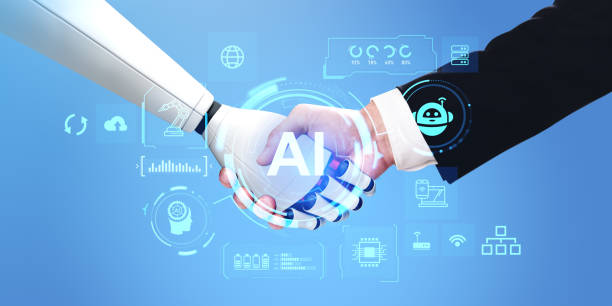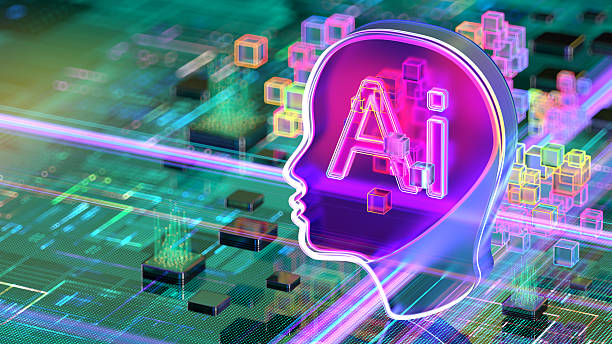What is an AI Robot: Definition and Concept
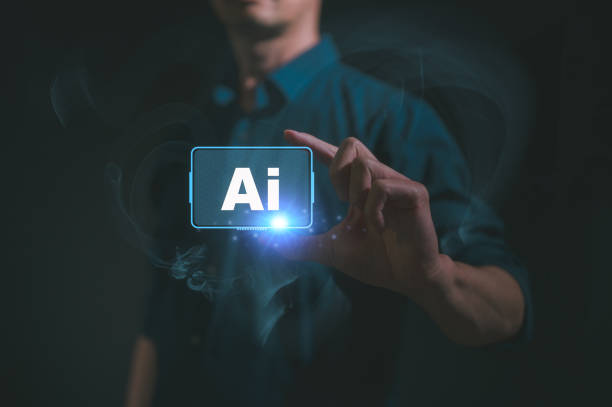
Today, the term #AI_Robot (AI Robot) is increasingly heard in technology and scientific circles.
But what exactly is an AI Robot? Simply put, an AI Robot is a combination of two distinct but related fields: robotics and artificial intelligence.
Robotics deals with the design, construction, operation, and application of robots, while artificial intelligence focuses on developing computer systems that can perform tasks that typically require human intelligence, such as learning, problem-solving, and decision-making.
An AI Robot is a device that uses artificial intelligence to perceive its environment, reason, plan, and act.
These robots can be used in a wide range of industries and applications, including manufacturing, healthcare, customer service, and even space exploration.
For example, an AI Robot in a factory can be used to perform repetitive and dangerous tasks, such as welding or painting.
In a hospital, an AI Robot can assist surgeons with complex operations or help patients with rehabilitation.
An AI Robot in customer service can answer customer questions and resolve their issues.
And in space, an AI Robot can be used to explore other planets and collect data.
AI Robots have the ability to learn from data and experiences, and as a result, their performance improves over time.
This adaptability makes AI Robots a powerful tool for solving complex problems and automating processes.
Do your e-commerce site visitors leave before making a purchase? Don’t worry anymore! With RasaWeb’s professional e-commerce website design services, solve the problem of not converting visitors into customers forever!
✅ Significant increase in conversion rates and sales
✅ Unique and engaging user experience
⚡ Contact us now for a free consultation!
Main Components of an AI-Based Robot
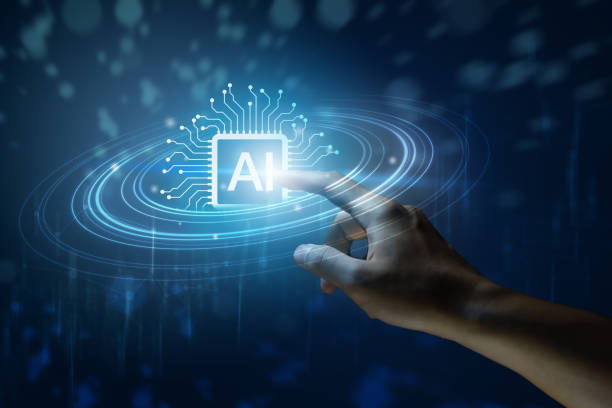
An AI Robot consists of several key components that work together to enable its intelligent and autonomous operation.
These components include:
- Sensors Sensors allow the AI Robot to gather information about its surroundings.
This information can include images, sounds, temperature, pressure, and other sensory data.
There are various types of sensors, including cameras, microphones, infrared sensors, ultrasonic sensors, and lidar. - Processors Processors are responsible for processing the information collected by sensors and making decisions based on it.
AI Robots typically use powerful and specialized processors optimized for the complex computations required for artificial intelligence. - Artificial Intelligence Algorithms AI algorithms are the brains of the AI Robot.
These algorithms allow the AI Robot to learn, reason, plan, and make decisions.
There are various types of AI algorithms, including machine learning, deep learning, natural language processing, and computer vision. - Actuators Actuators allow the AI Robot to interact with its environment.
These actuators can include motors, arms, legs, and other movement mechanisms. - Power Source AI Robots require a power source to operate.
This power source can include batteries, fuel cells, or a connection to mains electricity.
The combination of these components enables AI Robots to perform tasks that were previously only possible for humans.
Types of AI Robots
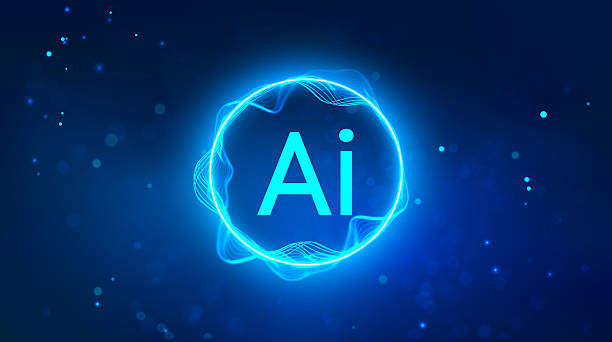
AI Robots come in various shapes and sizes and are designed to perform a wide range of tasks.
Some of the most common types of AI Robots include:
- Industrial Robots These robots are used in factories and other industrial environments to perform repetitive and dangerous tasks, such as welding, painting, and assembly.
- Service Robots These robots are designed to provide services to humans.
They can be used in hospitals, hotels, restaurants, and other public places.
Service robots are rapidly advancing and becoming widespread. - Medical Robots These robots assist doctors in performing complex operations or help patients with rehabilitation.Medical robots are highly valuable in the medical field.
- Exploration Robots These robots are designed to explore dangerous or inaccessible locations for humans.
They can be used in space, underwater, or in contaminated areas. - Household Robots These robots are designed to assist humans with daily chores.
They can vacuum, mow lawns, and protect the home.
In addition to these general classifications, AI Robots can also be categorized based on their level of intelligence.
Some AI Robots are only capable of performing simple, pre-programmed tasks, while others can learn, reason, and make complex decisions.
| Robot Type | Application | Example |
|---|---|---|
| Industrial | Automation of production processes | Welding, parts assembly |
| Service | Providing services to customers | Cleaning, order delivery |
| Medical | Assisting surgeons, patient rehabilitation | Robotic surgery, rehabilitation robots |
Applications of AI Robots in Various Industries
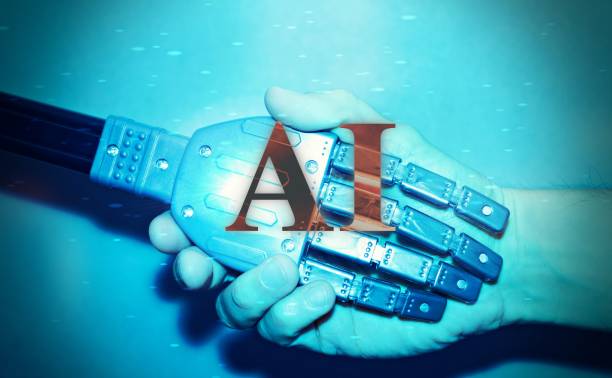
AI Robots are revolutionizing various industries and offering a wide range of applications.
Here are some prominent examples:
- Manufacturing AI Robots are used in manufacturing to automate repetitive and dangerous tasks, increase productivity, and improve quality.
They can weld, paint, assemble parts, and move materials. - Healthcare AI Robots are used in healthcare to assist surgeons with complex operations, help patients with rehabilitation, provide personalized care, and manage medications.
- Customer Service AI Robots are used in customer service to answer customer questions, resolve their issues, and provide technical support.
They can provide services through chatbots, phone calls, or face-to-face interactions. - Transportation AI Robots are used in transportation for autonomous vehicle driving, traffic management, and supply chain optimization.
- Agriculture AI Robots are used in agriculture for planting, harvesting, and monitoring crops, managing pests and diseases, and optimizing water and fertilizer usage.
These are just a few examples of the countless applications of AI Robots in various industries.
With technological advancements, AI Robots are expected to play an increasingly significant role in our lives.
Are you bothered by losing customers who visited your website to make a purchase?
RasaWeb is your specialized solution for having a successful online store.
✅ Significant increase in your online sales
✅ Building trust and professional branding among customers⚡ Get a free consultation from RasaWeb specialists!
Advantages and Disadvantages of Using AI Robots
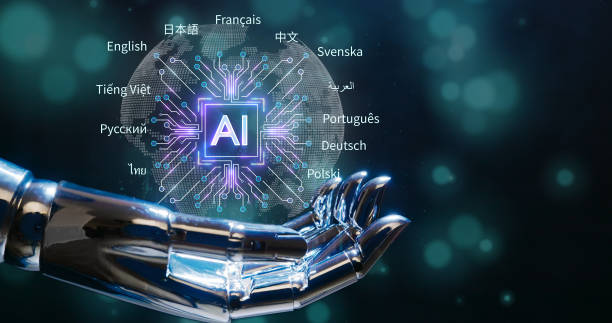
The use of AI Robots has its own advantages and disadvantages.
Understanding these pros and cons is essential for making informed decisions about using AI Robots in a specific context.
Advantages
- Increased Productivity AI Robots can perform tasks faster and more efficiently than humans, leading to increased productivity and reduced costs.
- Improved Quality AI Robots can perform tasks with greater accuracy and consistency than humans, leading to improved quality of products and services.
- Reduced Risks AI Robots can perform dangerous tasks, preventing harm to humans.
- 24/7 Availability AI Robots can work 24 hours a day, 7 days a week, without needing rest or holidays.
- Better Decision-Making AI Robots can process vast amounts of data and make better decisions than humans.
Disadvantages
- Cost AI Robots can be expensive and require significant initial investment.
- Complexity AI Robots can be complex and require expertise and technical knowledge for deployment, maintenance, and operation.
- Job Displacement AI Robots can replace human jobs, leading to job displacement and unemployment.
- Ethical Issues The use of AI Robots raises important ethical issues, such as accountability, transparency, and discrimination.
- Dependency Over-reliance on AI Robots can lead to a reduction in human skills and vulnerability to system failures.
By considering these advantages and disadvantages, informed decisions can be made regarding the use of AI Robots in a specific context.
Challenges in the Development of AI Robots
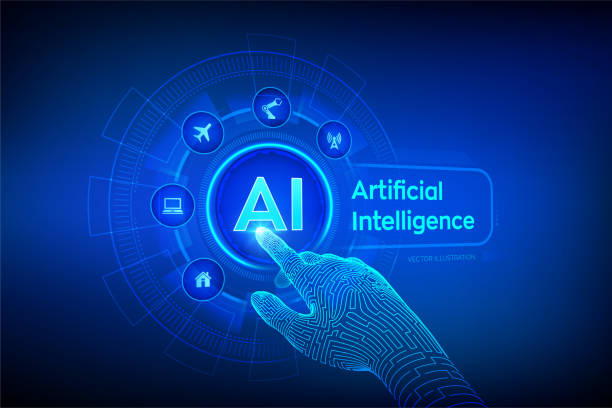
The development of AI Robots faces numerous challenges that require continuous research and innovation.
Some of the most important challenges include:
- Hardware Limitations Building powerful and efficient AI Robots requires advanced hardware that is not yet fully available.
Processors need to be faster, memories larger, and sensors more precise. - Lack of Data AI algorithms require large amounts of data for learning and performance improvement.
Collecting and labeling this data can be costly and time-consuming. - Algorithmic Problems AI algorithms are not yet perfect, and in some cases, they make incorrect or unreliable decisions.
Developing stronger and more reliable algorithms is essential. - Security Issues AI Robots can be vulnerable to cyberattacks and misuse.
Protecting AI Robots from these threats is crucial. - Ethical Issues The use of AI Robots raises important ethical issues, such as accountability, transparency, and discrimination.
Establishing ethical frameworks for the development and use of AI Robots is essential.
Overcoming these challenges requires a collaborative effort from researchers, engineers, policymakers, and other stakeholders.
The Future of AI Robots
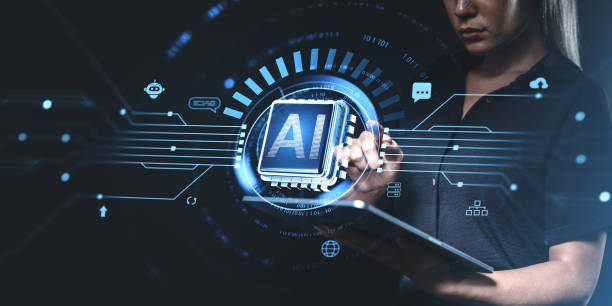
The future of AI Robots is very bright and full of potential.
With technological advancements, AI Robots are expected to play an increasingly significant role in our lives.
Here are some key trends shaping the future of AI Robots:
- Stronger AI AI algorithms are constantly improving, and AI Robots will be able to perform more complex tasks and make better decisions.
- More Advanced Sensors Sensors will become more accurate and diverse, and AI Robots will be able to perceive their surroundings more completely.
- Better Batteries Batteries with higher capacity and longer lifespan will be developed, allowing AI Robots to operate for longer periods without needing to recharge.
- Increased Connectivity AI Robots will increasingly connect to the internet and other networks, enabling them to communicate with each other and with humans.
- More Affordable The cost of AI Robots will decrease, making them accessible to more businesses and individuals.
These trends will lead to an expansion of AI Robot applications across various industries and an improvement in human quality of life.
| Trend | Impact |
|---|---|
| Stronger AI | Performing more complex tasks, better decision-making |
| More Advanced Sensors | More complete perception of the surroundings |
| Better Batteries | Longer operation without needing to recharge |
The Impact of AI Robots on the Job Market
![]()
The impact of AI Robots on the job market is a controversial topic.
On the one hand, AI Robots can increase productivity and reduce costs by automating repetitive and dangerous tasks.
This can lead to the creation of new jobs in areas related to the design, manufacturing, maintenance, and operation of AI Robots.
On the other hand, AI Robots can replace human jobs, leading to job displacement and unemployment.
Jobs most at risk of automation are routine and repetitive tasks that require few specialized skills.
To mitigate the negative effects of automation on the job market, governments and companies must take steps to retrain and upskill workers.
Furthermore, creating policies to support workers who lose their jobs is essential.
Ultimately, the impact of AI Robots on the job market depends on how this technology is developed and deployed.
If AI Robots are used responsibly and with consideration for social consequences, they can contribute to creating a stronger and more equitable economy.
Are you tired of your company’s website not getting the visibility it deserves and losing potential customers? Solve this problem forever with professional and effective website design by RasaWeb!
✅ Increase brand credibility and build customer trust
✅ Attract targeted sales leads
⚡ Contact us now for a free consultation!
Ethical Issues Surrounding AI Robots
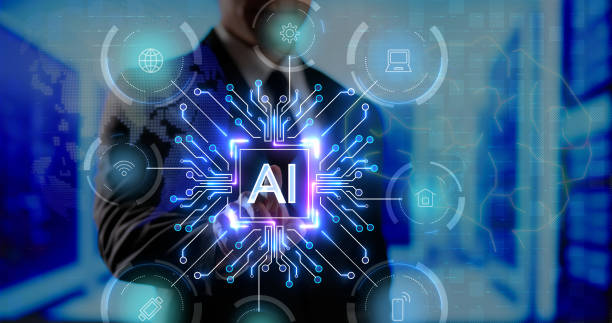
The development and use of AI Robots raise important ethical issues.
Some of these issues include:
- Accountability If an AI Robot causes harm, who is responsible? Is it the manufacturer, the owner, or the AI Robot itself?
- Transparency AI algorithms are often complex and difficult to understand.
How can we ensure that AI Robot decisions are fair and non-discriminatory? - Privacy AI Robots can collect and process large volumes of data.
How can the privacy of individuals be protected against the misuse of this data? - Security AI Robots can be vulnerable to cyberattacks and misuse.
How can AI Robots be protected from these threats? - Autonomy To what extent should AI Robots be autonomous? Should AI Robots be allowed to make decisions without human intervention?
To address these ethical issues, there is a need to establish comprehensive legal and ethical frameworks that regulate the development and use of AI Robots.
These frameworks must consider human rights and values and prevent the misuse of this technology.
How to Prepare for Entry into the Field of AI Robotics
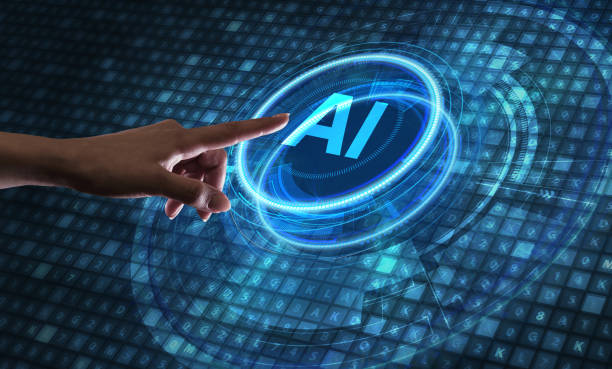
Entering the field of AI robotics requires a combination of technical knowledge, analytical skills, and creativity.
Here are a few steps you can take to prepare for this field:
- Understand Fundamental Concepts Familiarize yourself with the basic concepts of computer science, mathematics, and statistics.
These concepts are essential for understanding AI algorithms and how AI Robots function. - Learn Programming Languages Programming languages like Python, C++, and Java are crucial for developing AI Robots.
Choose one or more languages and start learning. - Study Machine Learning Machine learning is one of the most important branches of artificial intelligence that allows AI Robots to learn from data.
There are many online resources and courses available for learning machine learning. - Familiarize Yourself with Robotics Become acquainted with basic robotics concepts, such as kinematics, dynamics, and control.
You can find books, articles, and training courses in this field. - Undertake Practical Projects The best way to learn AI robotics is by working on practical projects.
Try starting with small projects and gradually making them more complex.
Additionally, participating in conferences, workshops, and training courses can help you stay updated with the latest advancements in this field and connect with other experts.
Frequently Asked Questions
| Question | Answer |
|---|---|
| What is an AI Robot? | It is a robot that uses artificial intelligence capabilities to perceive its environment, reason, learn, and make decisions to perform complex tasks autonomously. |
| What is the main difference between a regular robot and an AI Robot? | AI Robots can learn and adapt to their environment, while regular robots typically operate based on fixed, pre-programmed instructions. |
| In what fields are AI Robots used? | In fields such as industry (production lines), medicine (robotic surgeries), services (customer support, smart vacuum cleaners), exploration (space and underwater), and entertainment. |
| How do AI Robots learn? | They acquire new skills by analyzing large datasets and identifying patterns through machine learning and deep learning algorithms. |
| Can AI Robots have emotions? | Currently, no. They can identify or simulate emotions, but they do not experience real emotions like humans do. |
| What are the most important advantages of using AI Robots? | Increased productivity, reduced human error, performance of dangerous or repetitive tasks, and providing innovative and efficient services. |
| What challenges exist in the development of AI Robots? | The need for abundant and high-quality data, algorithmic complexity, ethical issues, cybersecurity, and the high cost of research and development. |
| Are AI Robots dangerous to humans? | With adherence to safe design principles and ethical regulations, no. Concerns are more related to social and economic impacts such as changes in the job market. |
| What is an example of an AI Robot in daily life? | Smart vacuum cleaner robots (like Roomba) that automatically map and clean homes, or smart voice assistants (like Siri and Alexa). |
| How is the future of AI Robots predicted? | They are expected to become smarter, more autonomous, and capable of more complex interactions with humans, playing a more prominent role in industry, medicine, transportation, and daily life. |
And other services of RasaWeb Advertising Agency in the field of advertising
- Smart Direct Marketing: A specialized service for increasing sales growth based on user experience customization.
- Smart Advertising Campaign: Revolutionize user interaction with the help of custom programming.
- Smart Advertising Campaign: Transform click-through rates with precise audience targeting.
- Smart Marketing Automation: A novel service for improving SEO ranking through key page optimization.
- Smart Data Analysis: Revolutionize click-through rates with the help of custom programming.
And over a hundred other services in the field of internet advertising, advertising consultation, and organizational solutions.
Internet Advertising | Advertising Strategy | Advertorials
Resources
Farnet: Comprehensive Guide to AI RobotsZoomit: Applications of AI Robots in IndustryDigiato: Review of AI Robot Performance and EfficiencyIRNA: The Future of AI Robots and Human Interaction
? Are you ready to revolutionize your business in the digital world? RasaWeb Afarin Digital Marketing Agency offers innovative solutions for your growth and success, including comprehensive services such as corporate website design and SEO. For more information and a free consultation, contact us.
📍 Tehran, Mirdamad Street, next to the Central Bank, South Kazeroon Alley, Ramin Alley, No. 6

